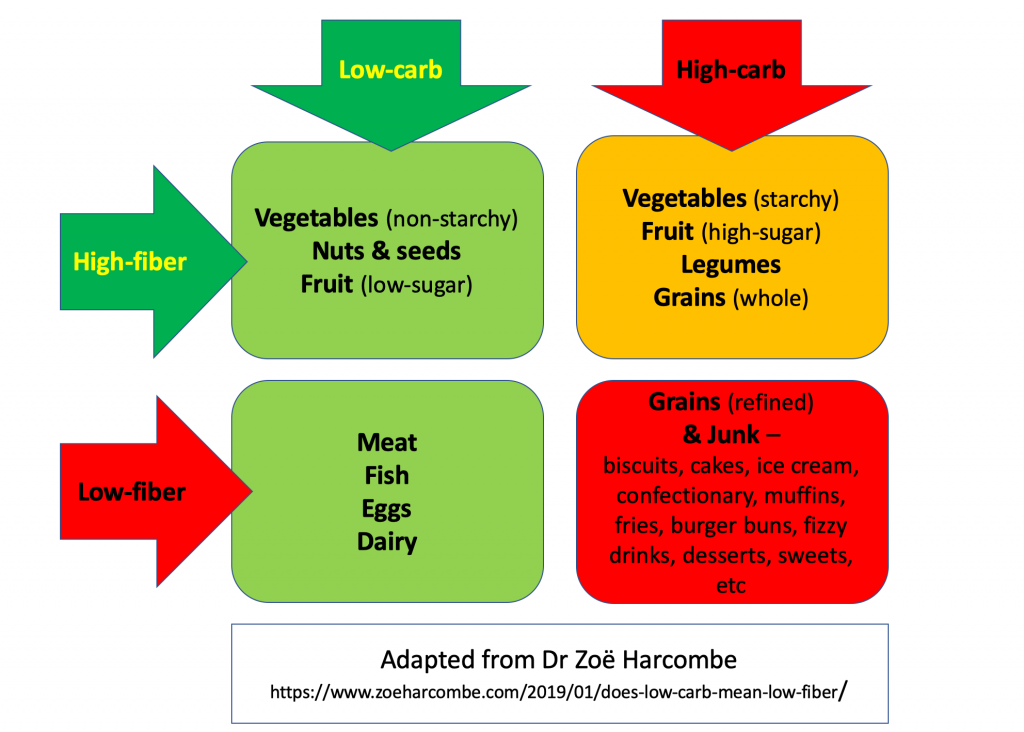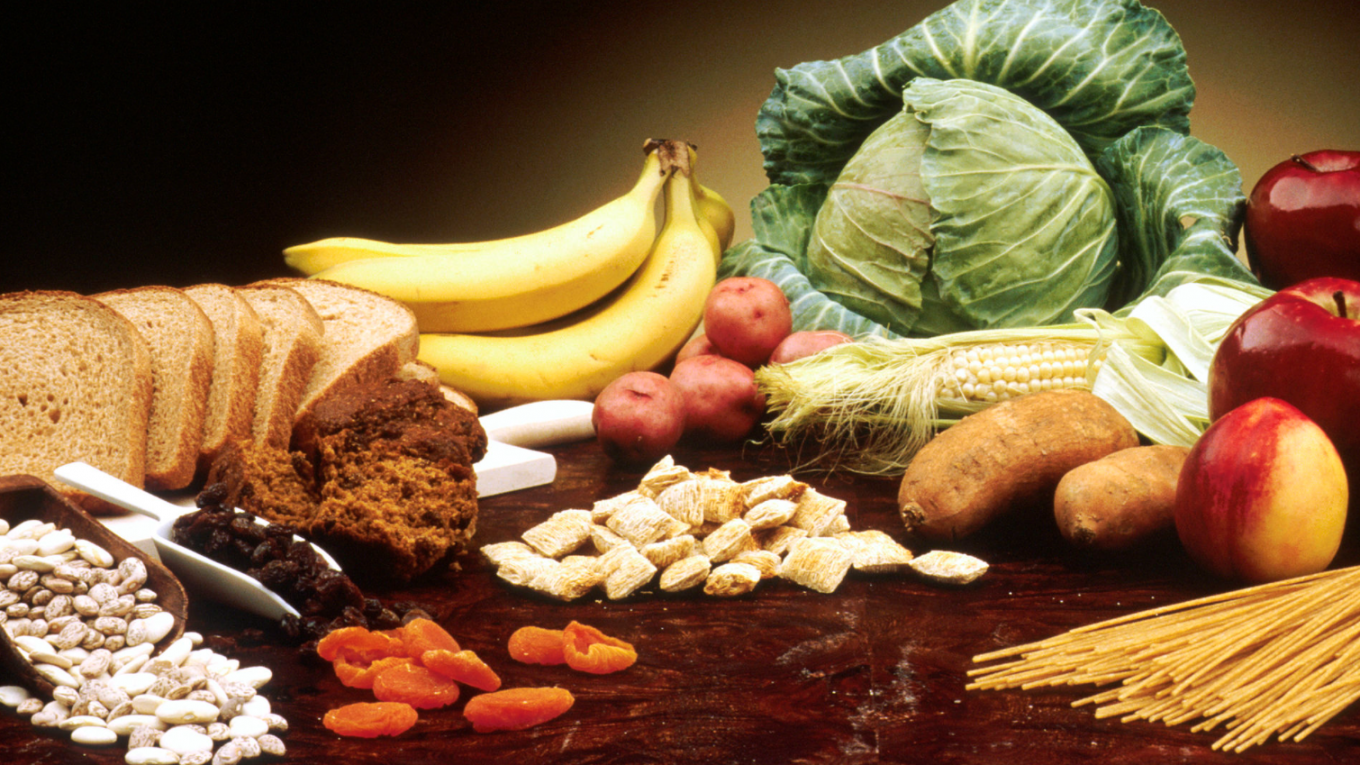Is dietary fibre a good thing?
Probably, the best-known advocate for the health benefits of increasing the fibre content in Western diets was Denis Burkett. He was a ground-breaking surgeon whose greatest work was in Africa after the Second World War. He was one of many who observed that the so-called ‘diseases of civilisation’ like coronary artery disease, adult-onset diabetes, obesity, appendicitis, bowel cancer, and even tooth decay were conditions almost absent in African populations who lived on a traditional (high-fibre) diet.

Many found Burkitt’s pioneering work persuasive and for a while fibre supplements and high-fibre foods became, a panacea for numerous ailments. Sadly, more careful investigations have shown that although adding fibre to the diet may help with constipation it does not usually relieve Diverticular Disease of the colon and Irritable Bowel Syndrome; nor does it reduce the risk of developing cancer of the colon. It seems that, when it came to fibre at least, Burkitt fell into one of the biggest traps in medical research, namely confusing association with causation. A recent review of the subject stated: Individuals who consume more fibre might have other healthy lifestyle attributes including smoking less, exercising more and consuming more fruits and vegetables, resulting in a halo effect for the benefits of fibre (1). It seems that “Fibre Man”, although passionate, was wrong (2).
So, what should we be doing about dietary fibre? Firstly, let’s just say what fibre actually is. Fibre is a carbohydrate component of our food, and all dietary fibre comes from plants. Unlike sugary and starchy foods, fibre does not raise blood sugar levels. Fibre neatly dives into soluble and insoluble types. Soluble fibre is the sort that becomes gelatinous during digestion and is fermented by bugs in the bowel. It is found in beans, oats, bran, nuts, peas, and certain citrus and berry fruits. Insoluble fibre remains relatively inert during its passage through the bowel but it may act as a scaffold, providing a comfortable niche for some of our bowel bugs to inhabit. Examples include cereals, cruciferous vegetables and potatoes. Many foods have both types of fibre in them. And, as we are increasingly finding out, bowel bugs (our intestinal flora) are intimately related to health and sometimes disease.

But, do we need fibre; can we survive without it? Well, the question is that we can indeed survive without any fibre. We can in fact survive and even thrive without any carbohydrate whatsoever. When the explorer Vilhjálmur Stefánsson report that his health had never been than better when he lived among the Inuit peoples of the high Arctic he was disbelieved. During his extended periods of travel, he lived almost exclusively on fish, seal, and whale meat with minimal carbohydrate foods (not a lot of carbs grow in the Arctic after all). This was a very high-fat diet and yet his Inuit hosts were supremely healthy – until their diets changed with the introduction of flour and sugar supplements from the Canadian Government. To resolve the veracity Stefánsson’s claims, he and a colleague agreed, under observation, to eat nothing but fatty meats for a year – no carbs at all (other than glycogen naturally found in liver meat). And of course, this meant he consumed no fibre at all. Guess what? They thrived. And, you guessed it, the medical establishment took absolutely no notice of this paradigm-busting evidence. The study conducted at the Belle View Hospital in New York was published in the Journal of the American Medical Association in 1929 (and still remains behind a pay-wall almost a century later!). You can find out more about Stefánsson by following Reference 3.
Many contemplating a low-carb diet will find themselves scolded that (a) it is low in fibre and (b) that it is unhealthy and unbalance. To answer the first question – no it isn’t. You can read a good article on this question at dietdoctor.com (4). Regarding the second question, that low-carb is a dangerously low-fibre way to eat, have a look at the table below. I found it on Zoë Harcombe’s website (5). The top-left box consists of a cornucopia of low-carb high-fibre vegetables, nuts, and berries. All can accompany the lower-left box of nutritionally dense delicious real food ingredients. Zoë writes clearly on nutritional matters and is forensic in her regular analyses of food news and research. Her books and blogs are highly recommended.

That said, it may be that over the next few months and years the role played by our microbiome, and its love of food variety and fibre, may require a re-evaluation of the role of dietary fibre. The microbiome consists of the trillions of microbial fellow passengers that inhabit the insides of our bowels. It is becoming increasingly clear that we live in a close symbiotic relationship with them and that the character of the microbiome is critically dependent on the types of foods we eat. So, it appears that the fibre rich foods mentioned above, as well as pulses and fermented products like live yoghurt and sauerkraut, can have a profound effect on health and wellbeing.
So, in a nutshell, what about fibre? Well, for me at least, I think it is much more important to concentrate on cooking with real food and dining on real meals. That way any benefits that exist for dietary fibre will be gained naturally and without supplementation. The reductionist approach based on quantifying the various chemical components of what we eat is (in my opinion) a gift for the processed food industry. A few years ago, the food journalist Michael Pollan wrote ‘you should probably avoid food products that make a health claims’ (6). I agree. Cooking with real foods and dining with real meals are what I believe in (7).
Dr Chris Barclay
June 2020
- https://www.ncbi.nlm.nih.gov/pmc/articles/PMC2659900/
- Fibre Man was the title of Burkitt’s autobiography.
- https://www.atlasobscura.com/articles/all-meat-diet
- https://www.dietdoctor.com/low-carb/high-fiber-foods?fbclid=IwAR2ctxJC_XVhndm0E8MWMVwY1wyjq4Ehc-IeU1Xk26gyoKCi-SNMvoFNBvI
- https://www.zoeharcombe.com/2019/01/does-low-carb-mean-low-fiber/
- https://michaelpollan.com/articles-archive/unhappy-meals/
- ‘Beating Diabetes the Low-carb way’ by Dr Chris Barclay. https://www.amazon.co.uk/BEATING-DIABETES-low-carb-Chris-Barclay/dp/0993395767/ref=sr_1_1?dchild=1&keywords=beating+diabetes&qid=1623579011&sr=8-1 & csbarclay.com

